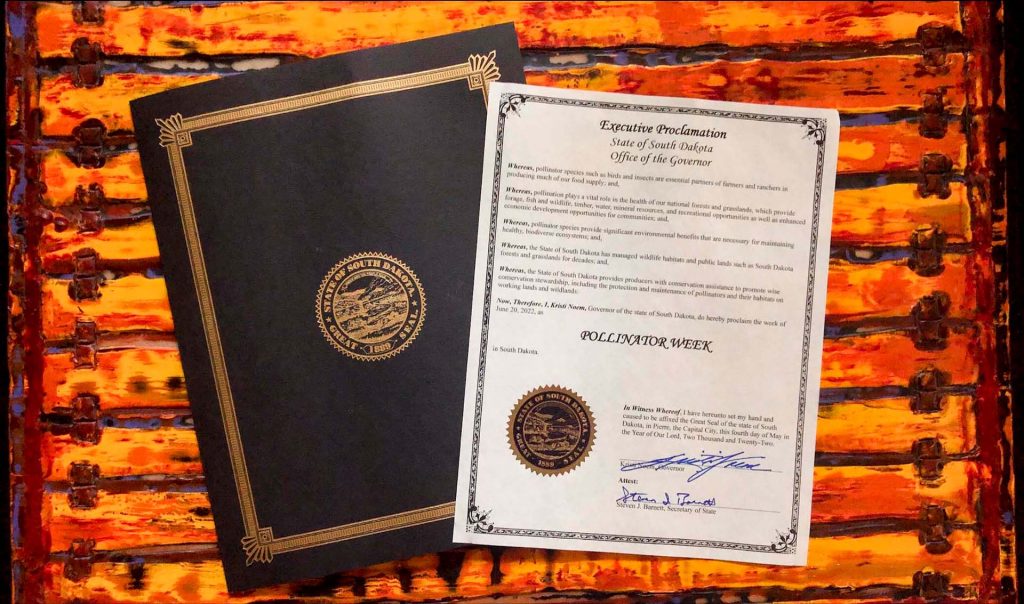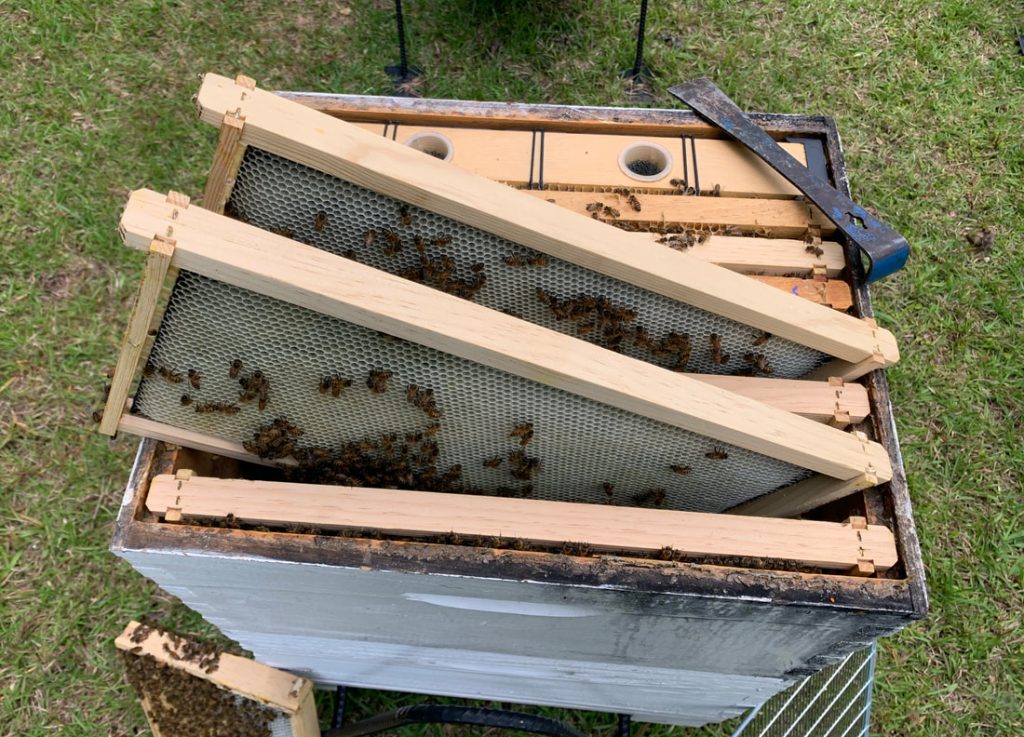Impactful Bee-Friendly Organizations
Supporting bee-friendly organizations with a donation is one easy way anyone can help bees. But how can you be sure that your dollars are making the most impact?
Supporting bee-friendly organizations with a donation is one easy way anyone can help bees. But how can you be sure that your dollars are making the most impact?
There are many organizations dedicated to helping honey bees and pollinators. From research to habitat to education and policy – however you want to help, there is an organization that can utilize your donation. Project Apis m. is a founder of the Bee Health Collective and supports honey bee research and habitat projects. You can learn more, and donate to the cause here.
A strong honey market keeps beekeepers in business- selling honey allows them to invest in healthy bees. Support a beekeeper near you, and bee health, by buying honey! National Honey Board has a Honey Locator Tool that you can use to find local honey near you.
Following Integrated Pest Management principles will help you use other measures, and pesticide use is a last resort. If you do choose to use pesticides (herbicides, insecticides or fungicides) in your garden or lawn, be sure to read labels carefully and follow the instructions. Buying organic food can also help reduce your pesticide impact and often local organic produce is produced on small farms with better sustainability practices that benefit bees.
In 2005, a NASA study estimated that nearly 2% of all land in the US is constituted by lawns. That equals about 40 Million acres of the iconic lush, green grass that is sought after by many homeowners, golf courses, and businesses. These lawns not only create “food deserts” for pollinators, they also use an estimated 7 Billion gallons of water per day. With growing issues like a lack of pollinator and insect habitat, increased chemical use, and water and drought concerns, re-framing the idea of an “ideal” lawn could have significant positive environmental impacts, including supporting pollinators.
Does your yard support pollinators? Planting flowers is a great step, but even mowing your lawn less frequently can provide more habitat for bees – and you don’t have to break a sweat to do it. Replacing grass with clover is another way to re-think your yard that benefits pollinators and also improves soil health. In Minnesota you can even apply for a grant to help you transform your yard into a pollinator haven!
Just like humans, bees need good nutrition to stay healthy and strong. As urbanization and agriculture expand and take up more space on the landscape, there is less habitat left for pollinators. While some initiatives are addressing this on a large scale, many hands make light work and planting pollinator friendly flowers – in your garden, yard, or even a window box or pot, makes a difference! Pollinator Partnership and the U.S. Forest Service offer regional planting guides, so you can discover what to plant in your area to make the biggest impact.
If you manage or farm land, and want it to support pollinators, these programs offer free seed mixes and technical guidance:
For those who think about bee health often, June 20th kicks off a familiar and fun time of year. It’s the beginning of Pollinator Week- an annual, international, event to celebrate pollinators and raise awareness about pollinator health.

All of our Bee Health Collective partners celebrate pollinator week, and Project Apis m.’s own Danielle Downey even helped get the week officially proclaimed in her home state of South
Dakota.
Did you know: Anyone can help get this week proclaimed by submitting a request to your home state. You can see if your state participates, and how to make the proclamation request here: https://www.pollinator.org/pollinator-week/proclamations
At the Bee Health Collective, we are celebrating by sharing a new look, new features, and fun facts about pollinators that can be found on our website which was created to promote accurate information about bee health and beekeeping in the U.S.
Happy Pollinator Week!
You may have heard the statement “all beekeeping is local”. This means that, depending on where you keep bees, your beekeeping actions for a particular month could be drastically different than what is appropriate for beekeepers located elsewhere! During April, some beekeepers might be busy with tasks like installing packages and raising queens, while others might be using the mild days to crack lids on their colonies even while there’s snow on the ground. Regardless of what other tasks you are trying to accomplish this April, we hope you will find time to fill out our annual Honey Bee Colony Loss and Management Survey!
